Welcome to issue 103 of the Call to Comms!
This week, meet Julia*, a woman who left El Salvador with her family because of persecution. As we talked in a shelter in Mexico, she explained how she used the information TSF shares on screens to have a conversation with her daughters about bodily autonomy, trust and open communication.
*Name changed for safety reasons.
TSF works with centers along the migration route in Latin America to display essential, reliable and timely information on remote-controlled screens. The humanitarian information focuses on topics such as human rights, administrative procedures, health, education, and more.
Can you introduce yourself?
J: My name is Julia and I left due to safety concerns and persecution in my home country. I’m from El Salvador. I came to this shelter because the journey was very difficult. When I arrived at an office in Tenosique, a UNHCR officer recommended for my safety that I come to this shelter. I’m also receiving treatment from Doctors Without Borders.
How do you feel about staying at the shelter?
J: Honestly, it’s wonderful. I have no complaints. I’m happy, my children are happy, and that’s what matters. I have four children, and I came with my husband and my brother as well.
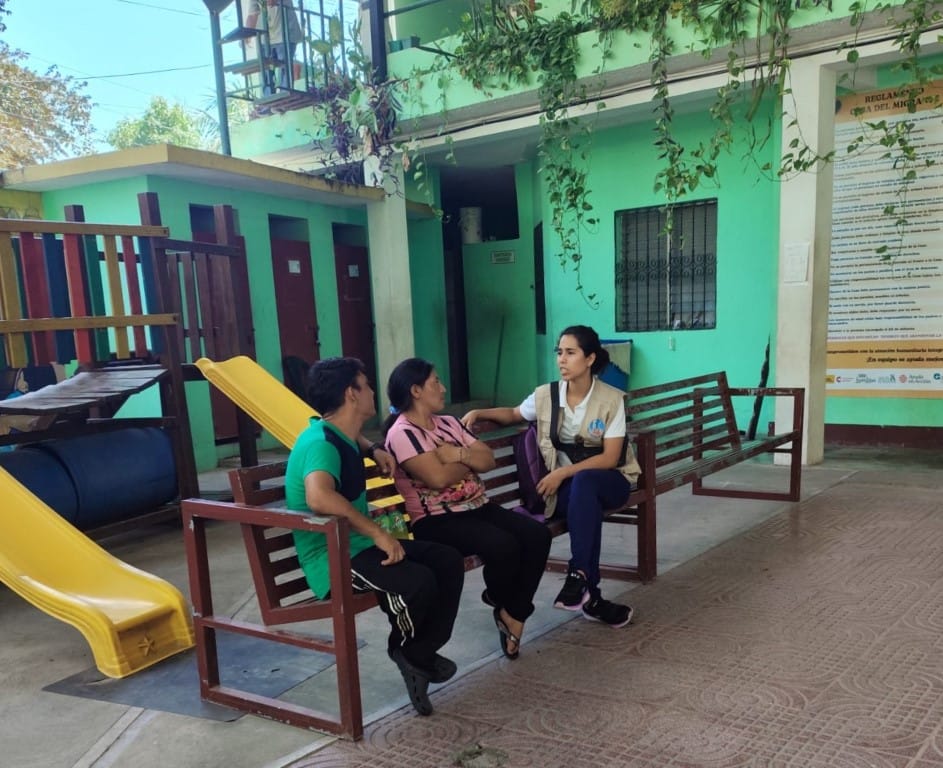
Have you had the chance to look at the screens in the dining area or at the entrance? Anything that caught your attention?
J: Yes, of course. I learned about the shelter, about procedures. One thing that stood out to me was the message directed at children, saying that if something makes them uncomfortable, they shouldn’t stay silent. It emphasized that their body is theirs and encouraged them to talk to their parents. I watched the whole thing. It struck me because communication between parents and children is crucial. That message was particularly impactful for me.
"The message had such an impact on me that I talked to my daughters."
Have you made any decisions based on the content you saw?
J: Yes, the message had such an impact on me that I talked to my daughters. I told them—because I have three daughters—one is 12 years old, practically a teenager, and another will turn 8 soon. I explained that if they ever feel uncomfortable, whether it’s due to someone touching them, staring, or anything, they need to tell me. I won’t know what’s happening unless they tell me.
How did your daughters respond?
J: At first, they asked why I was telling them this. I explained that as they grow, there are things they don’t yet understand. I told them they need to be aware of their personal boundaries. If they ever feel that someone is doing something inappropriate, they should let me know immediately. They understood quickly, and we had a great conversation.
“One thing that stood out to me was the message directed at children, saying that if something makes them uncomfortable, they shouldn’t stay silent, that their body is theirs.”
Along your journey, was there ever a moment when you wished you had information that you later discovered but didn’t have at the time?
J: Yes, definitely. Not too long ago, I attended a meeting organized by the Hebrew Immigrant Aid Society. I was amazed to learn about the services they offer. If I had known about them earlier, I wouldn’t have been so afraid, and I would have sought help sooner.
There are organizations that help women, that help with gender violence, if something has happened to you along the way. If you don't want to be here anymore, they help you return, things like that. I didn't know that at all, and I'm glad I met them all, they have all helped me.
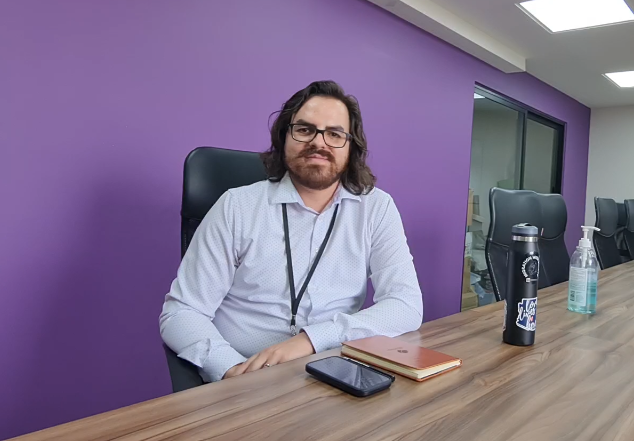
What would you like to tell other people on the move, based on your experience?
J: Sometimes, you have no choice but to leave your home. But it’s essential to stay informed. These organizations have websites and social media pages. It would help others to research more to avoid dangers or scams and make their journey safer.
“It's essential to stay informed.”
See you in two weeks!


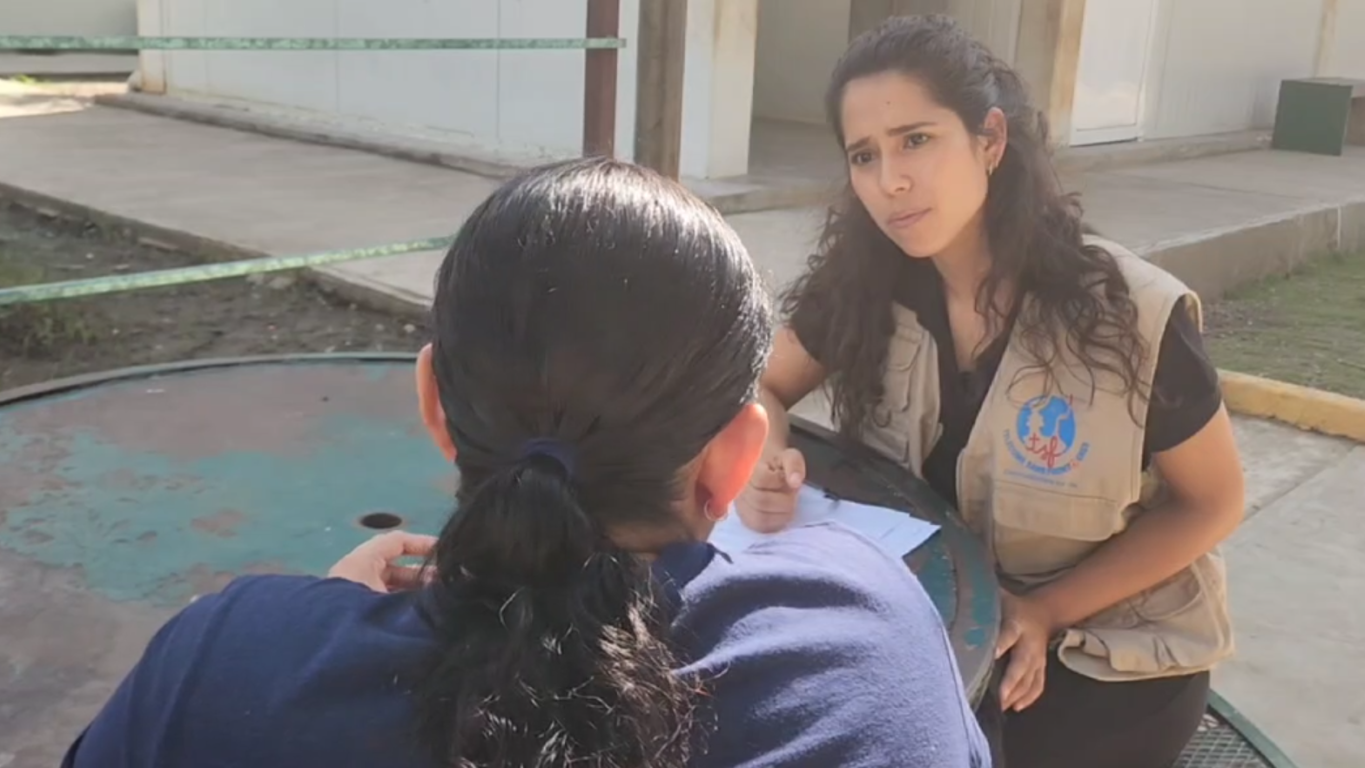



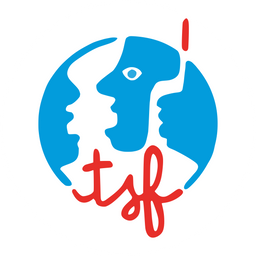
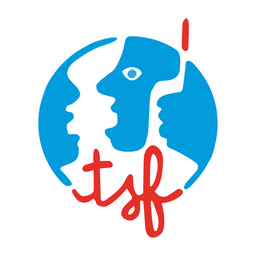
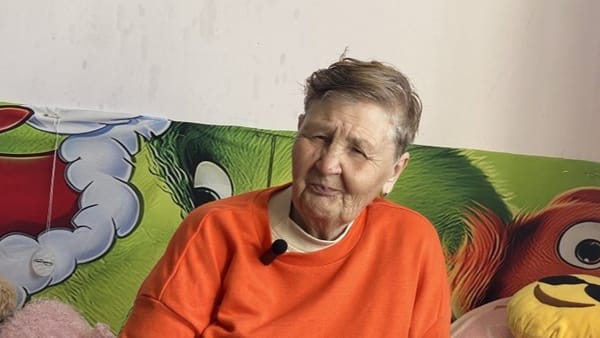
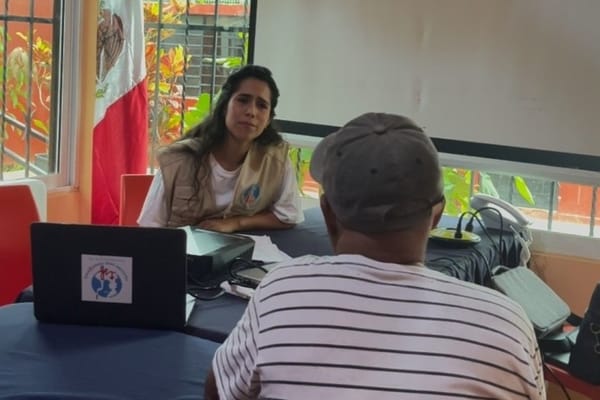

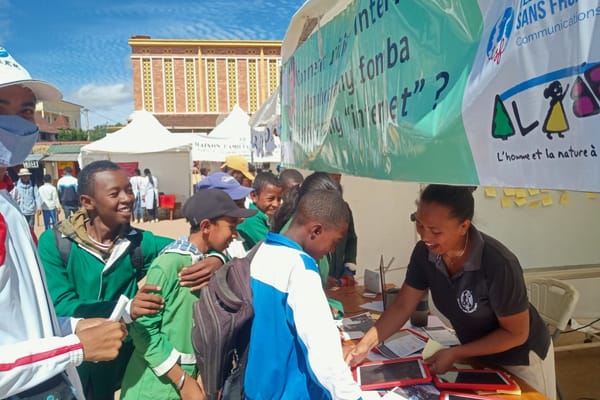
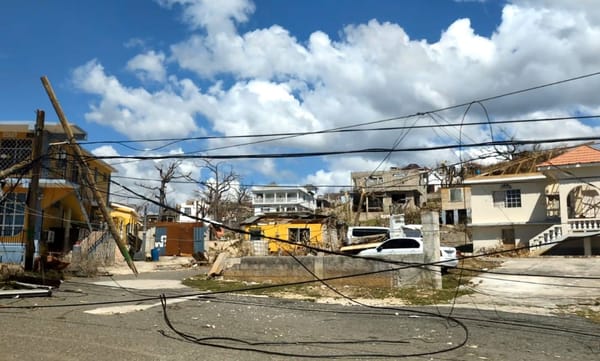
Member discussion